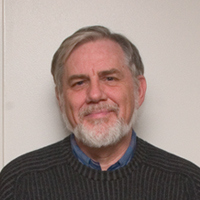Digital Badges: Individual or Categorized Learning Badges?

Tools and ideas to transform education. Sign up below.
You are now subscribed
Your newsletter sign-up was successful
The idea of digital badges sounds appealing for the digital children in classes. As teachers start thinking about digital badges, they have to figure out what badges will be awarded. The teachers can award social or academic badges. If teachers decide to use academic badges, then the teachers may base their badges on the Common Core Standards or other international proficiencies. That decision leads to additional questions. How much learning will the students do during the course? How many badges will be awarded during the course? Will the badges represent each individual proficiency or categories of proficiency?
For example, in the beginning college semester of Spanish, students will achieve about 80% of the forty eight proficiencies in the Novice Level of the NCSSFL-ACTFL Can-Do Proficiency Statements or the equivalent of thirty nine badges. The semester is fifteen weeks long. Will the teachers group these badges together so that the number of badges gets reduced down to fifteen or fewer categories or will the teachers award thirty nine badges? If the teachers use categories, do the categories represent the same type of learning at the same degree of difficulty? Are the categories chronologically based or can a beginning proficiency category not be achieved until other more advanced categories are learned? For example, the third category of “I can answer a few simple questions” includes the proficiency of “I can respond to who, what, when and where questions.” However, students usually demonstrate proficiency in at least three other supposedly more advanced proficiencies before they show proficiency in this beginning proficiency.
How have you selected the the digital badges for the learning in your course?
cross-posted at http://eduwithtechn.wordpress.com
Harry Grover Tuttle teaches English and Spanish college courses at Onondaga Community College and blogs at Education with Technology. He is also the author of several books on formative assessment and the new ebook 90 Mobile Learning Modern Language Activities.
Tools and ideas to transform education. Sign up below.
